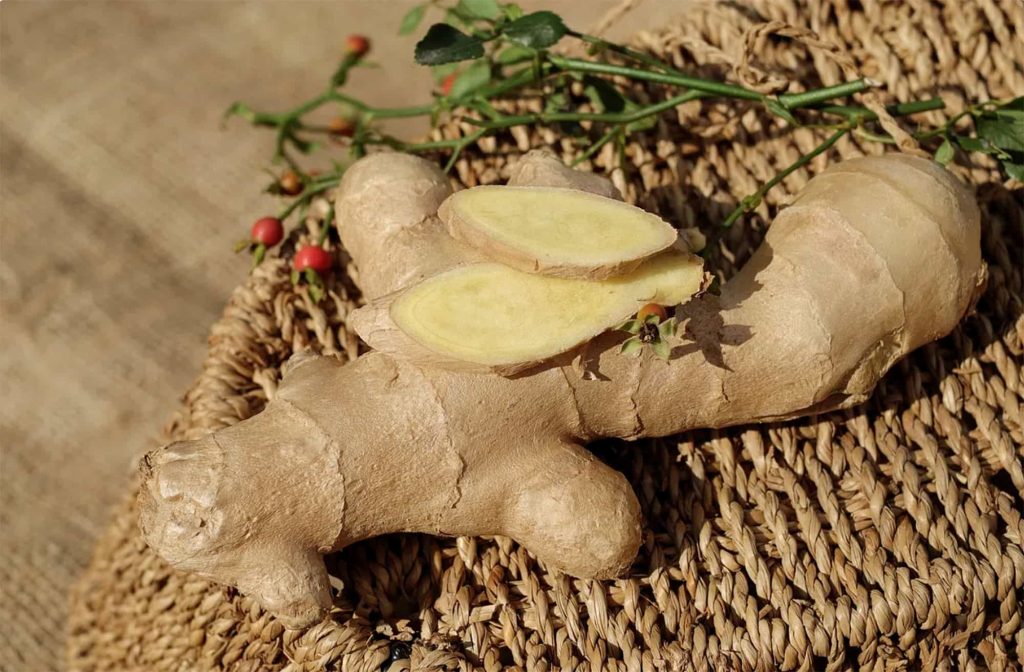10 Benefits of Herbs
By PENNY SWIFT
Herbs have been used for centuries for various medicinal, culinary, and therapeutic benefits. Knowing their benefits will help you choose what to plant.
Whatever your reason for growing herbs, here are 10 brilliant benefits of herbs to keep in mind. Many, but not all, of the herbs we have suggested you use for each of the benefits are ones that you can easily grow at home. There are also several that will probably be in your grocery cupboard for culinary use.
Bear in mind that some herbs have multiple benefits. If your space is limited, these are the ones to plant first.
Top 10 Benefits of Herbs

#1 Natural Flavor Enhancers
Herbs can add depth and complexity to the taste of dishes without the need for excessive salt or unhealthy seasonings. There are a lot that you can grow at home easily, including these:
- Basil is a classic herb used in Italian cuisine. It has a sweet and slightly peppery flavor that complements a wide range of dishes, including pasta, salads, and sauces.
- Mint is known for its refreshing taste and is perfect for adding to beverages like tea, lemonade, and cocktails. It also pairs well with fruits, salads, and savory dishes.
- Rosemary has a distinctive pine-like flavor and is fantastic for seasoning roasted vegetables, potatoes, meats, and bread.
- Thyme is an underrated herb with a subtle earthy taste. It works well in soups, stews, marinades, and roasted dishes.
- Parsley is one of the most versatile herbs and one of the easiest to grow. It has a mild, fresh taste and is often used as a garnish. But parsley can also enhance the flavors of salads, soups, and sauces.
- Chives are mild onion-flavored herbs that will add a hint of onion flavor to food.
- Cilantro (Coriander) has a bright and citrusy taste and is an essential herb in Mexican, Indian, and Southeast Asian cuisines.
- Oregano is commonly used in Mediterranean dishes. It has a robust and slightly bitter taste that blends well in tomato-based sauces, pizzas, and grilled meats.
- Sage has a slightly savory flavor and is excellent for seasoning poultry, stuffing, and some pasta dishes.
- Marjoram has a flavor that is similar to oregano. It is great for seasoning meat, poultry, and vegetables.
All these herbs can be easily grown in pots or small containers on a sunny windowsill or balcony. They are also great additions to a kitchen garden or raised bed. By growing these herbs at home, you’ll have a fresh and convenient supply of natural flavor enhancers to take your cooking to the next level.
#2 Digestive aid

Certain herbs, like mint (especially peppermint), can help soothe digestive issues and reduce bloating.
- Mint contains compounds like menthol that have muscle-relaxing effects on the gastrointestinal tract. This can help ease the movement of food through the digestive system and reduce gas buildup, in this way alleviating bloating and discomfort. Peppermint has antispasmodic properties, which means it can help reduce spasms or cramps in the intestines, providing relief from bloating and digestive discomfort.
- Ginger has a long history of use as a digestive aid. It can help stimulate digestion, reduce inflammation, and alleviate bloating and gas. Ginger tea or adding fresh ginger to meals can be beneficial. Have a look at our article that tells you how to grow your own ginger at home.
- Fennel seeds have carminative properties, which means they can help expel gas and relieve bloating. Fennel tea is a common remedy for indigestion and bloating.
- Chamomile has calming effects on the digestive system and can help soothe stomach discomfort, including bloating. It is often consumed as a tea.
- Dill seeds and leaves have been used traditionally to aid digestion and reduce bloating. Drinking dill tea or adding dill to dishes can be helpful.
- Lemon Balm has antispasmodic properties that can help ease digestive discomfort and bloating. It can also be consumed as a tea.
- Turmeric contains curcumin, which has anti-inflammatory properties that can support digestive health and reduce bloating.
#3 Anti-inflammatory properties

Several herbs have shown anti-inflammatory properties and can help reduce inflammation in the body. Incorporating these herbs into your diet or using them as supplements may contribute to an anti-inflammatory effect. Some of the best herbs known for their anti-inflammatory properties include turmeric, ginger, cloves, and cinnamon, which has anti-inflammatory and antioxidant properties that can help combat inflammation and oxidative stress in the body.
These four herbs are easy to grow at home.
- Rosemary contains rosmarinic acid, which has anti-inflammatory properties and may provide relief for certain inflammatory conditions.
- Oregano is rich in antioxidants and contains compounds like carvacrol and thymol, which have anti-inflammatory effects.
- Sage contains compounds with anti-inflammatory properties, making it a valuable herb for reducing inflammation.
- Basil contains flavonoids with anti-inflammatory effects that may help reduce inflammation in the body.
While these herbs can be beneficial for reducing inflammation, it’s essential to remember that chronic inflammation may be a sign of an underlying health condition. If you have persistent inflammation or a medical condition, it’s crucial to consult with a healthcare professional for proper evaluation and treatment. Additionally, incorporating a well-balanced diet and a healthy lifestyle can further support anti-inflammatory efforts.
#4 Stress Relief

Several herbs are known for their calming and stress-relieving properties. Incorporating these herbs into your daily routine can help promote relaxation and alleviate stress. Here are some of the best herbs for stress relief:
- Lavender is renowned for its soothing aroma, which can help reduce anxiety and promote better sleep. You can use dried lavender flowers in herbal teas or use lavender essential oil in aromatherapy diffusers.
- Chamomile has mild sedative effects and is often used to promote relaxation and ease tension. Enjoy chamomile tea before bedtime or during stressful moments.
- Passionflower has calming effects and is used to reduce anxiety and promote restful sleep. It is available in tea, tincture, or supplement form.
- Valerian root is known for its sedative properties and can help improve sleep quality and reduce stress. It is often found in herbal sleep aids.
- Lemon Balm has a gentle calming effect and can help reduce nervousness and promote relaxation. It can be consumed as tea or used as a herbal supplement.
- Green Tea, made from the leaves of the Camellia sinensis plant, contains L-theanine, an amino acid that promotes relaxation and reduces stress without causing drowsiness.
While these herbs can be beneficial for stress relief, it’s essential to adopt a holistic approach to managing stress. This may include incorporating relaxation techniques, exercise, and a balanced diet into your lifestyle.
#5 Antibacterial and antiviral effects

Many herbs have natural antibacterial and antiviral properties that can aid in fighting infections. Here are some examples:
- Oregano is an antioxidant that has potent antibacterial and antiviral properties. It contains compounds such as carvacrol and thymol.
- Garlic, which is well known for its immune-boosting properties, contains allicin, a powerful compound with antibacterial and antiviral effects.
- Thyme is rich in vitamin C. It also contains thymol, a natural compound with strong antibacterial and antiviral properties.
- Peppermint contains menthol, which has antibacterial properties, and it’s also useful for soothing digestion.
- Rosemary is rich in antioxidants and has antibacterial effects against various pathogens.
- Sage is known for its antimicrobial properties that can help fight bacterial and viral infections.
- Lemon Balm contains rosmarinic acid, which has antiviral properties.
- Fennel contains anethole, which has shown antimicrobial activity against various bacteria and viruses.
- Chamomile is known for its calming properties, but it also has mild antibacterial and antiviral effects.
- Lavender has a relaxing aroma as well as some antibacterial and antiviral properties.
#6 Pain Relief

Several herbs can help relieve pain and discomfort when grown at home. These herbs have natural analgesic and anti-inflammatory properties, making them excellent choices for addressing various types of pain.
For instance, white willow bark contains salicin, which is similar to the active ingredient in aspirin. It can help reduce pain and inflammation and is available in supplement form. Arnica, a traditional herbal remedy known for its pain-relieving properties, is another great natural remedy. Arnica cream or gel can be applied topically to sore muscles or bruises.
Here are some of the best herbs you can grow at home to help relieve pain. You will notice that most have anti-inflammatory properties.
- Peppermint contains menthol, which has a cooling effect and can help soothe headaches and muscle pain when applied topically or used as a herbal tea.
- Lavender has calming and analgesic properties. Its essential oil can be used topically to massage sore muscles or added to bathwater for relaxation and pain relief.
- Rosemary contains rosmarinic acid, which has anti-inflammatory effects and can help ease muscle pain and headaches. It can be used in cooking or made into a herbal infusion.
- Turmeric has powerful anti-inflammatory properties that can help alleviate joint pain and inflammation. It can be used in cooking or made into golden milk.
- Ginger, which we have mentioned several times already, has anti-inflammatory effects and can help reduce muscle pain and inflammation.
- Chamomile can be used as a tea or added to bathwater to help relax and relieve pain.
- Cayenne Pepper contains capsaicin, which can help relieve nerve pain when applied topically as a cream or ointment.
- Cloves have analgesic properties, and clove oil can be used topically to relieve toothaches and gum pain.
Just be aware of any allergies or sensitivities you may have to specific herbs.
#7 Skin Care

Herbs like aloe vera and calendula have soothing and healing effects on the skin, making them valuable in skincare products. However, several herbs that are beneficial for skin care can be easily grown at home. These herbs have various properties that promote healthy skin, soothe irritation, and provide nourishment.
- Aloe Vera is a versatile herb and succulent plant known for its soothing and healing properties. The gel from the leaves can be applied topically to soothe sunburn, irritation, and minor wounds.
- Lavender can help soothe irritated skin. It can be used in the form of essential oil or dried flowers can be infused in carrier oils.
- Calendula, also known as marigold, has anti-inflammatory and wound-healing properties. Infused oil or cream made from calendula flowers can be used to promote skin repair.
- Chamomile is great for soothing sensitive or irritated skin. Chamomile tea can be used as a gentle facial toner.
- Rosemary has antioxidant properties that can help protect the skin from damage caused by free radicals. It can be used in infused oils or added to facial steams.
- Mint has a cooling effect on the skin and can help soothe itching and irritation. Mint leaves can be crushed and applied topically or used in facial steams.
- Lemon Balm has antiviral and antibacterial properties and can be used to soothe cold sores and minor skin irritations.
- Thyme has antimicrobial properties that can help combat acne-causing bacteria. Thyme-infused oil or toner can be used for blemish-prone skin.
#8 Regulation of Blood Sugar

Several herbs have been studied for their potential to help regulate blood sugar levels and may be beneficial for individuals with diabetes or those looking to maintain stable blood sugar levels.
- Cinnamon has been shown to improve insulin sensitivity and reduce blood sugar levels. You can use cinnamon powder or cinnamon sticks to add flavor to your meals or drinks.
- Bitter Melon: Bitter melon contains compounds that have been shown to have blood sugar-lowering effects. The fruit can be consumed as part of meals or made into juice.
- Ginger may help improve insulin sensitivity and reduce blood sugar levels.
- Turmeric and curcumin, the active compound in turmeric, have been studied for potential blood sugar-lowering effects.
- Oregano has been shown to improve insulin sensitivity and reduce blood sugar levels. It can be used as a seasoning in cooking.
- Cloves have been found to enhance insulin secretion and improve glucose utilization. You can use ground cloves as a spice in cooking.
- Holy Basil (Tulsi) may help lower blood sugar levels and improve insulin function. It can be consumed as a herbal tea.
- Rosemary has compounds that may help improve glucose metabolism.
If you have diabetes or any health condition, it’s essential to work with a healthcare professional to create a comprehensive plan for managing blood sugar levels. This will usually include diet, exercise, medications, and sometimes herbs.
#9 Hair Health

Growing herbs at home for hair health is a great way to incorporate natural and nourishing ingredients into your hair care routine. Many herbs are beneficial for promoting hair growth, strengthening hair, and improving overall scalp health. Whether you use them as herbal infusions, essential oils, or fresh extracts, these herbs can contribute to healthier, stronger, and more vibrant hair.
- Rosemary has been used traditionally to promote hair growth and improve circulation to the scalp. You can make a rosemary-infused oil or use rosemary essential oil in hair care products.
- Lavender also helps to improve scalp health and promote hair growth. Lavender oil is often added to hair care products,but you can use it for scalp massages too.
- Peppermint has a cooling effect on the scalp and can help stimulate hair follicles.
- Aloe Vera has soothing and hydrating properties, making it beneficial for dry or irritated scalps. Aloe vera gel can be applied directly to the scalp or added to hair masks.
- Nettle is rich in vitamins and minerals that can help nourish the hair and promote hair growth. Nettle tea or nettle-infused oil can be used for hair rinses or scalp treatments.
- Chamomile can also soothe an irritated scalp and you can use chamomile tea as a final hair rinse.
- Thyme has antimicrobial properties that can help combat scalp issues and promote a healthy environment for hair growth. Thyme-infused oil can be used for scalp massages.
- Fenugreek seeds can help strengthen hair and improve its overall health. You can soak fenugreek seeds and make a paste for hair masks.
#10 Sustainable Gardening
Growing herbs at home is an eco-friendly way to have a fresh supply of ingredients without relying on store-bought products with excessive packaging.
The sky’s the limit when it comes to choice. Simply choose the herbs you like and will use, making sure they will grow well in your backyard environment.





